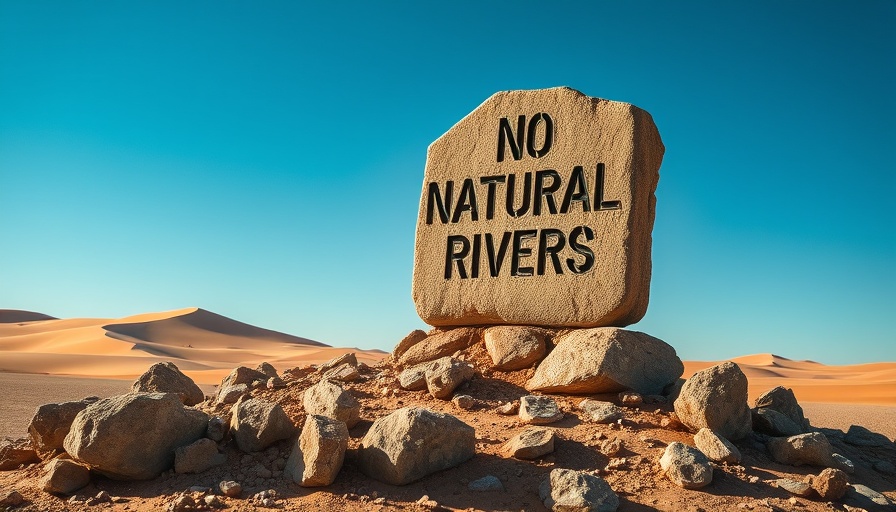
Exploring Freshwater Solutions in Riverless Countries
While most countries are crisscrossed by rivers providing crucial freshwater, some nations find themselves without these vital resources. Understanding how these countries source freshwater offers insights into beneficial practices that can inspire travelers and eco-friendly entrepreneurs alike.
The Challenge of Water Scarcity
Many nations without natural rivers face significant challenges in securing fresh drinking water and managing their agricultural needs. For instance, countries like Saudi Arabia and the United Arab Emirates have developed innovative desalination processes to transform seawater into potable water, thus ensuring their populations have consistent access to this essential resource.
Innovative Water Solutions: Desalination and Beyond
Desalination plants have become pillars of water supply for countries lacking natural river systems. These facilities draw seawater, remove the salt, and provide fresh water for consumption. In fact, the Middle East is a leader in desalination technology, showing valuable lessons in energy efficiency and sustainable practices that can be applied globally. However, such processes consume vast amounts of energy, prompting a pivot toward renewable energy sources to minimize environmental impact and enhance sustainability.
Rainwater Harvesting: A Sustainable Technique
Another increasingly popular solution is rainwater harvesting. Countries like Qatar have implemented systems to collect rainwater, which is then filtered and used for irrigation, home use, and even drinking purposes. This method not only conserves freshwater resources but also reduces dependency on energy-intensive desalination. By adopting such systems, communities can significantly lower their carbon footprint and embrace sustainable development practices.
Future Predictions: What Lies Ahead for Water Management
As climate change increasingly disrupts weather patterns, the demand for innovative freshwater sourcing solutions will only grow. Countries without natural rivers must continue exploring diverse strategies, including sustainable food practices and reclaimed materials in infrastructure, to adapt to changing conditions.
Actionable Insights for Sustainable Travel
Travelers and hospitality professionals looking to make an impact can adopt sustainable practices. For instance, opting for eco-friendly packaging in food services, participating in tree planting initiatives, and choosing net-zero hotels can contribute to a more sustainable travel experience. When tourists show a preference for sustainability, it encourages local businesses to adopt more eco-conscious strategies.
Embracing Sustainability in the Hospitality Industry
For hotel and resort operators, focusing on energy-efficient systems, such as efficient cold storage for food supplies, can lead to significant energy savings. Additionally, implementing compostable packaging and practices that reduce resource consumption can lower operational costs and appeal to eco-aware travelers.
Conclusion: The Role of the Individual
Ultimately, whether you're a traveler or involved in the hospitality sector, understanding the challenges faced by countries with no natural rivers can spur innovative approaches to water management. As nations increasingly pursue sustainability strategies, we can align our choices with these efforts. Moving forward, we all have a role to play in protecting our planet’s resources while enjoying and exploring its beauty.
 Add Row
Add Row  Add
Add 




Write A Comment